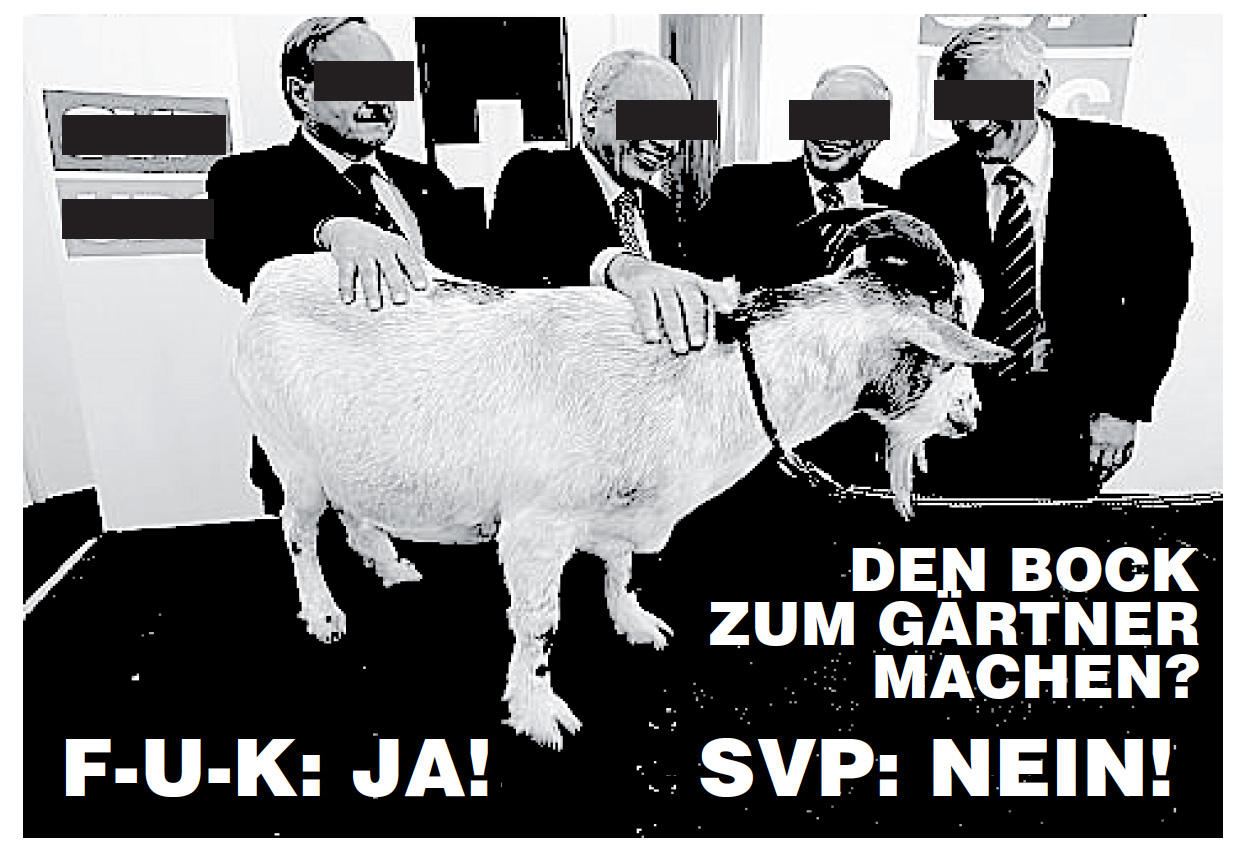A spoof initiative claims victory despite failure

The promoters of an unusual people’s initiative to “deport criminal men” say the campaign has achieved its goal even though it won’t be put to a nationwide vote. But was it anything more than a frivolous use of direct democratic rights?
The proposal was launched 18 months ago and caused considerable amusement in the media near and far.
It was a “political work of art”, says Christian Mueller, the man behind the action that will come to an unspectacular end on Wednesday.
The idea was a protest against a rightwing initiative, approved by voters in 2010, to automatically deport criminal foreigners.
Mueller copied and pasted the original hardline text, replacing the words “foreigner(s)” by “man/men”.
Despite no proper campaign or budget, Mueller says he and cohorts collected several thousand signatures. However, he won’t hand them in to the Federal Chancellery for validation.
Under Swiss law, it takes at least 100,000 citizens to sign a proposal for a vote on a constitutional amendment.

Satire
“It was meant as a kind of satire,” says the 35-year-old activist and artist from Basel. He considers his action a success.
But personally, his goal was never to collect enough signatures.
“We achieved our aim. The hardline proposal to enforce the 2010 initiative was rejected this February. I hope our action contributed to it.
“Art should also be allowed to be political,” he adds.
This is his response to critical questions as to whether the use of artistic means in a political public debate is acceptable.
Mueller says the Federal Chancellery had checked the text of the initiative and gave the green light for the formal launch of the proposal in November 2014. Even if it implicitly called for an expulsion of convicted Swiss citizens from their own country. But where to?
“It’s up to parliament to find a solution to this question,” he says.
Mentality
It is not easy to find comprehensive and reliable information on similar mock initiatives in recent Swiss history.
Artists have staged different actions in the context of the rightwing deportation proposal.
At a formal news conference in Zurich in 2010 a group of actors announced the launch of a people’s initiative seeking the introduction of a penal system based on the nationality of the criminal – a flagrant violation of human rights, but an analogy to the aims of the original plans.
The initiative had little impact in the media and was withdrawn at an earlier stage than planned, according to the promoters. (See videoExternal link in German.)
Another apparent spoof campaign that was registered with the government dates back to 1983 when a committee called for taxes to promote the consumption of tobaccoExternal link. It was an attempt to parody road transport associations trying to boost road traffic by securing further state financing.
However, there are serious doubts political satire has much of an impact in Switzerland. Experts say there is little acceptance for such approaches.
Frivolous?
Georg Lutz, professor of political science at the University of Lausanne, is wary of putting limits on initiatives just because they might be considered frivolous or in breach of common sense norms.
He says proposals can only be banned if they violate the core principles of international law or coherence – quite a vague criteria.
Lutz points to highly controversial proposals launched by political parties over the past few years.
“These initiatives were often intended as obvious political campaign tools and risked undermining basic rights,” he argues.
Failed initiatives
He rejects allegations that the launch of the criminal men spoof initiative is a misuse of a direct democratic right because the promoters made no serious effort to win the necessary support of citizens. And they are not alone.
A survey shows that one in five people’s initiatives launched between 1981 and 2010 ended without reaching the required number of signatures.
The proposal to deport criminal men is in fact the 114th people’s initiative in modern Swiss history to fail at this early stage of the process – and the first one this year.
This comes on top of the 181 proposals rejected by voters in nationwide ballots since the direct democratic right to call for changes in the constitution was introduced in 1891. Only 22 of them have been successful so far.

In compliance with the JTI standards
More: SWI swissinfo.ch certified by the Journalism Trust Initiative



You can find an overview of ongoing debates with our journalists here. Please join us!
If you want to start a conversation about a topic raised in this article or want to report factual errors, email us at english@swissinfo.ch.